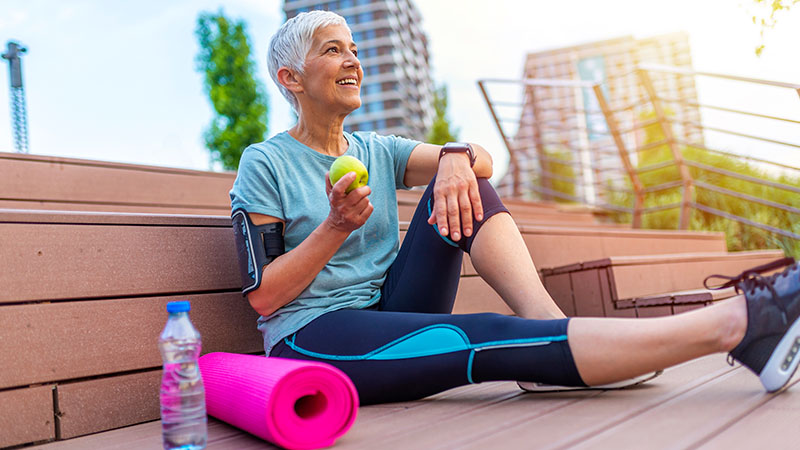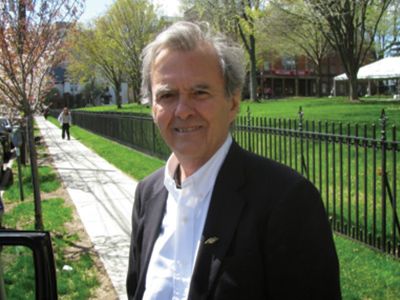The Explosion of Wellness Startups
There is a wealth of opportunity in the health and wellness sector. In a recent research report, Global Wellness Institute noted, “As we emerge from the pandemic, GWI predicts that the wellness economy will return to its robust growth. We project 9.9% average annual growth, with the wellness economy reaching nearly $7.0 trillion in 2025.”

GWI ticks off 11 distinct sectors of the wellness economy:
- Personal Care and Beauty ($955 billion)
- Healthy Eating, Nutrition, and Weight Loss ($946 billion)
- Physical Activity ($738 billion)
- Wellness Tourism ($436 billion)
- Traditional & Complementary Medicine ($413 billion)
- Public Health, Prevention, and Personalized Medicine ($375 billion)
- Wellness Real Estate ($275 billion)
- Mental Wellness ($131 billion)
- Spas ($68 billion)
- Workplace Wellness ($49 billion)
- Thermal/Mineral Springs ($39 billion)
In wellness today, there are many different routes to the same goal: good health and better living. Right now, creative entrepreneurs are busily honing in on making their mark — and perhaps a fortune too — pursuing wellness-related startups. Read on and embrace the breadth of opportunity that shapes today’s wellness economy.
Sweet Dreams
How’s your sleep? According to the Centers for Disease Control (CDC), 70 million Americans (that’s one in five of us) have significant trouble sleeping.
Up in Toronto, Canadian chiropractor Justine Luchini said that as COVID took hold, she found herself combatting more severe sleep problems. “Why am I having this trouble,” she asked herself. She is an athlete and focused on fitness; it struck her that she was not maximizing the benefits of sleep in her life.
Most of us spend around one-third of every day asleep — or trying to sleep. It's an important time. The mind and body refresh and restore themselves as we sleep, said Dr. Luchini.
Enter Thirdzy, a company she co-founded that focuses on developing sleep aids, notably their PM Recovery Collagen, a powder that dissolves into a cool liquid that is drunk before sleep. It contains nothing habit-forming. No prescription required.
It’s formulated to deliver a better night’s sleep, and, says Dr. Luchini, users will see that in the data on their sleep trackers (such as the Oura Ring, Halo Band, or Whoop).
Thirdzy also offers a Bed Reset capsule. Both products are available for delivery to Canadian and US addresses.
As for promotion, Dr. Luchini said the company is presently focused on brand ambassadors — primarily fitness-focused social media influencers — because the company’s primary market presently is fitness devotees. The products are also available for purchase at a small number of high-end gyms. She is looking for boutique retailers to add to her retail mix.
Her hope, she said, is to expand into marketing to the mainstream health-conscious consumer too.
For now, she has put her chiropractic practice on hold to work full time on Thirdzy.
Go Green
A century ago, there was plenty of farming in cities — people grew not just ornamental flowers but also the crops that they ate. Flash forward to today, and urban farms are something of a rarity; however, in Boston, Connor Harbison, founder of Atlas Urban Farms, is out to change that.
“I want to transform how we live in cities,” said Harbison. “Cities need to be greener.”
Also, he notes, “the average food journey is 1,500 miles” — bite into that avocado in Harvard Square, Cambridge and you can bet it has made a journey from Mexico.
Harbison wants to change the equation with Atlas Urban Farms, where he installs a 4 sq. ft hydroponic garden — no soil needed, just water — that includes grow lights and is self-watering. This is hyper-efficient farming. “I can create the equivalent of 40 sq. ft. of gardening in 4 sq. ft. — we provide 20 plants in that space.”
The United States is scarred by so-called food deserts — primarily inner-city neighborhoods — that lack access to fresh, healthy food. Harbison sees Atlas Urban Farms — and its hydroponic agriculture — as a possible way to bring fresh food to food deserts.
For now, he has focused on installations of mini-farms in offices, apartment buildings, and schools, said Harbison, who puts the cost at $1,000 monthly. In that fee, Atlas Urban Farms provides all upkeep for the mini-farm.
Harbison added that what he is selling is not produced as such — although the installations do produce significant crops, presently focused on herbs; however, in the past, kale, strawberries, and other crops were harvested. “We are selling the experience.”
That’s why events are a speciality of Atlas Urban Farms. One event is a cocktail party where drinks are garnished with fresh herbs from the garden — think mint, basil, or something more exotic.
Atlas Urban Farms also has put on food-oriented events — think of salads enlivened with fresh herbs, for instance.
The big idea: even in a city, you can grow your own — and Harbison believes that philosophy will power his company to success.
Easy PT
If you lead an active lifestyle, you know there is nothing easy about a regimen of physical therapy to mend a torn calf muscle, a blown spinal disk, or a stretched ligament. But, the day will come when you will be told you must do physical therapy to mend your injuries.
It is not easy to self-manage this regimen. The sharp point of the dilemma is: am I doing the exercise hard enough to get repairs, or so hard I am causing new damage? Guess wrong, in either direction, and you have probably wasted a month or two of daily physical therapy routines.
There has to be a better way. And now there is. Meet Kunal Gandhi, a 22-year-old recent graduate of the University of Pittsburgh who has spawned an ingenious mobile phone app EZPT. The idea started when he blew a back disk after his senior year in high school, and it gained velocity while he worked as a trainer on teams at Pitt.
Eventually, a lightbulb clicked and he crowdsourced a team of 30 college students around the country — PT experts, computer coders, and more — and what eventually was created is an app that uses the mobile phone camera to bring the eyes of a trainer into a rehab session done in a user’s home, neighborhood park, wherever.
The EZPT brand promise: “Recover from injury faster. It's simple. We give you feedback on your form to prevent getting injured and recover from previous injuries faster.”
The promise continues: “We recommend movements based on user-specific biomechanics and pain points to help users correct their neuromuscular patterns, lower their pain levels, prevent (re-)injury, and accelerate physical rehabilitation.”
The app has been several years in the making, said Gandhi, but version 3.0 is just about ready to drop.
So far, Gandhi said, he has marketed the app via TikTok — “every day we get 20 to 100 new sign-ups.” But expect more to happen soon. Word of mouth has been stron,g and seed funding has come from all-time NBA great Magic Johnson and also the NFL Players Association, said Gandhi. “People see we have been making progress for three years and now a lot of people share our vision.”
Talking Brooklyn
Now for something completely different: bigger, bolder, brassier. Enter Gaia NoMaya, a 7,000 sq. ft. complex on Flatbush Avenue in Brooklyn, short steps away from Prospect Park, a centerpiece of the Brooklyn wellness lifestyle.
What is Gaia NoMaya? Co-founder Sara Ramirez Loaiza unraveled the Sanskrit explaining that Gaia is Mother Earth and Maya is illusion and ego. This is a place where people will find just the good stuff with none of the ego and pretense.
Included under this roof, said co-founder Andrew Goldin, are just about all the wellness activities you could think of: spa, sauna, Himalayan salt cave, Elixir cafe, healthy cocktail bar, yoga classes, breathwork classes, healthy vegan food, and more. If it’s wellness-focused, there’s probably a place for it under this roof. Gaia NoMaya is intended to be a destination where people from the Brooklyn neighborhood and just about anywhere will come; there will be plenty to do, all with like-minded people who share the same wellness passions.
Sound like nothing you’ve heard? That’s because it hadn’t existed until now. All the elements are available in various places scattered around New York, “but there is no other place that puts all this in one space,” said Goldin.
What’s the revenue model? Subscriptions will give members access to a range of classes and services. Anticipated membership price range is $200 to $500 per month.
Understand this too: these founders are thinking very big. “We have a high ceiling,” said Goldin. “We see this concept working in other cities.”
Your Wellness Startup Begins Here
These stories inspire you to pursue your own wellness startup? The market potential is immense — riches will be made by many. But know that authenticity often is the secret ingredient of wellness success. Start from your own beliefs and needs. If you need it and it works for you, it just might work for others!
About the Author

Robert McGarvey, a veteran journalist who has long covered startups and small businesses, created and hosts the CU2.0 Podcast for credit union and fintech executives which is at 120 episodes and counting.
Startup Resources
- Learn more about Startups
- Visit the TRUiC Business Name Generator
- Check out the TRUiC Logo Maker
- Read our Business Formation Services Review
- Find Startup Ideas
- Explore Business Resources
Form Your Startup
Ready to formally establish your startup? Click below to read our review of the best business formation services!
Best Business Formation Services